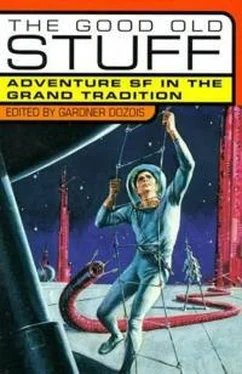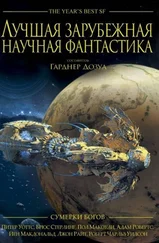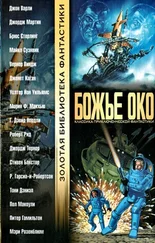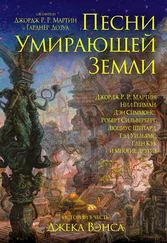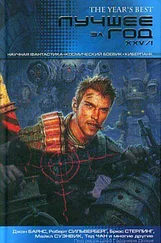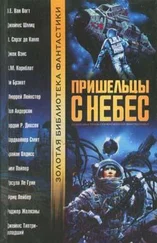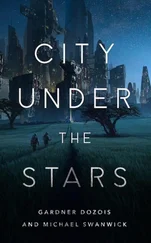Гарднер Дозуа - The Good Old Stuff
Здесь есть возможность читать онлайн «Гарднер Дозуа - The Good Old Stuff» весь текст электронной книги совершенно бесплатно (целиком полную версию без сокращений). В некоторых случаях можно слушать аудио, скачать через торрент в формате fb2 и присутствует краткое содержание. Год выпуска: 1998, ISBN: 1998, Издательство: St. Martin's Griffin, Жанр: Фантастика и фэнтези, на английском языке. Описание произведения, (предисловие) а так же отзывы посетителей доступны на портале библиотеки ЛибКат.
- Название:The Good Old Stuff
- Автор:
- Издательство:St. Martin's Griffin
- Жанр:
- Год:1998
- ISBN:0-312-19275-4
- Рейтинг книги:3 / 5. Голосов: 1
-
Избранное:Добавить в избранное
- Отзывы:
-
Ваша оценка:
- 60
- 1
- 2
- 3
- 4
- 5
The Good Old Stuff: краткое содержание, описание и аннотация
Предлагаем к чтению аннотацию, описание, краткое содержание или предисловие (зависит от того, что написал сам автор книги «The Good Old Stuff»). Если вы не нашли необходимую информацию о книге — напишите в комментариях, мы постараемся отыскать её.
The Good Old Stuff — читать онлайн бесплатно полную книгу (весь текст) целиком
Ниже представлен текст книги, разбитый по страницам. Система сохранения места последней прочитанной страницы, позволяет с удобством читать онлайн бесплатно книгу «The Good Old Stuff», без необходимости каждый раз заново искать на чём Вы остановились. Поставьте закладку, и сможете в любой момент перейти на страницу, на которой закончили чтение.
Интервал:
Закладка:
On the night after the day that brought summer officially to the land of Wend, on the planet of Noorhut, the shining lights were seen again in the big hollow at the east end of Grimp’s father’s farm.
Grimp watched them for more than an hour from his upstairs room. The house was dark, but an occasional murmur of voices floated up to him through the windows below. Everyone in the farmhouse was looking at the lights.
On the other farms around and in the village, which was over a hill and another two miles up the valley, every living soul who could get within view of the hollow was probably doing the same. For a time, the agitated yelling of the Village Guardian’s big pank-hound had sounded clearly over the hill, but he had quieted down then very suddenly—or had been quieted down, more likely, Grimp suspected. The Guardian was dead-set against anyone making a fuss about the lights—and that included the pank-hound, too.
There was some excuse for the pank-hound’s excitement, though. From the window, Grimp could see there were a lot more lights tonight than had turned up in previous years—big, brilliant-blue bubbles, drifting and rising and falling silently all about the hollow. Sometimes one would lift straight up for several hundred feet, or move off over the edge of the hollow for about the same distance, and hang there suspended for a few minutes, before floating back to the others. That was as far as they ever went away from the hollow.
There was, in fact, no need for the Halpa detector-globes to go any farther than that to get the information wanted by those who had sent them out, and who were listening now to the steady flow of brief reports, in some Halpa equivalent of human speech-thought coming back to them through the globes: “No signs of hostile activity in the vicinity of the break-through point. No weapons or engines of power within range of detection. The area shows no significant alterations since the last investigation. Sharp curiosity among those who observe us consciously—traces of alarm and suspicion. But no overt hostility.”
The reports streamed on without interruption, repeating the same bits of information automatically and incessantly, while the globes floated and dipped soundlessly above and about the hollow.
Grimp continued to watch them, blinking sleepily now and then, until a spreading glow over the edge of the valley announced that Noorhut’s Big Moon was coming up slowly, like a Planetary Guardian, to make its own inspection of the lights. The globes began to dim out then, just as they always had done at moonrise in the preceding summers; and even before the top rim of the Big Moon’s yellow disk edged over the hills, the hollow was completely dark.
Grimp heard his mother starting up the stairs. He got hurriedly into bed. The show was over for the night and he had a lot of pleasant things to think about before he went to sleep.
Now that the lights had showed up, his good friend Grandma Erisa Wannattel and her patent-medicine trailer were sure to arrive, too.
Sometime late tomorrow afternoon, the big draft-trailer would come rolling up the valley road from the city. For that was what Grandma Wannattel had done the past four summers—ever since the lights first started appearing above the hollow for the few nights they were to be seen there each year. And since four years were exactly half of Grimp’s whole life, that made Grandma’s return a mathematical certainty for him.
Other people, of course, like the Village Guardian, might have a poor opinion of Grandma, but just hanging around her and the trailer and the gigantic, exotic-looking rhinocerine pony that pulled it was, in Grimp’s opinion, a lot better even than going to the circus.
And vacations started the day after tomorrow! The whole future just now, in fact, looked like one good thing after another, extending through a vista of summery infinities.
Grimp went to sleep happily.
At about the same hour, though at a distance greater than Grimp’s imagination had stretched as yet, eight large ships came individually out of the darkness between the stars that was their sea, and began to move about Noorhut in a carefully timed pattern of orbits. They stayed much too far out to permit any instrument of space-detection to suspect that Noorhut might be their common center of interest.
But that was what it was. Though the men who crewed the eight ships bore the people of Noorhut no ill will, hardly anything could have looked less promising for Noorhut than the cargo they had on board.
Seven of them were armed with a gas which was not often used any more.
A highly volatile lethal catalyst, it sank to the solid surface of a world over which it was freed and spread out swiftly there to the point where its presence could no longer be detected by any chemical means.
However, its effect of drawing the final breath almost imperceptibly out of all things that were oxygen-breathing was not noticeably reduced by diffusion.
The eighth ship was equipped with a brace of torpedoes, which were normally released some hours after the gas-carriers dispersed their invisible death. They were quite small torpedoes, since the only task remaining for them would be to ignite the surface of the planet that had been treated with the catalyst.
All those things might presently happen to Noorhut. But they would happen only if a specific message was flashed from it to the circling squadron—the message that Noorhut already was lost to a deadly foe who must, at any cost now, be prevented from spreading out from it to other inhabited worlds.
Next afternoon, right after school, as Grimp came expectantly around the bend of the road at the edge of the farm, he found the village policeman sitting there on a rock, gazing tearfully down the road.
“Hello, Runny,” said Grimp, disturbed. Considered in the light of gossip he’d overheard in the village that morning, this didn’t look so good for Grandma. It just didn’t look good.
The policeman blew his nose on a handkerchief he carried tucked into the front of his uniform, wiped his eyes, and gave Grimp an annoyed glance.
“Don’t you call me Runny, Grimp!” he said, replacing the handkerchief.
Like Grimp himself and most of the people on Noorhut, the policeman was brown-skinned and dark-eyed, normally a rather good-looking young fellow. But his eyes were swollen and red-rimmed now; and his nose, which was a bit larger than average, anyway, was also red and swollen and undeniably runny. He had hay-fever bad.
Grimp apologized and sat down thoughtfully on the rock beside the policeman, who was one of his numerous cousins. He was about to mention that he had overheard Vellit using the expression when she and the policeman came through the big Leeth-flower orchard above the farm the other evening—at a much less leisurely rate than was their custom there. But he thought better of it. Vellit was the policeman’s girl for most of the year, but she broke their engagement regularly during hay-fever season and called him cousin instead of dearest.
“What are you doing here?” Grimp asked bluntly instead.
“Waiting,” said the policeman.
“For what?” said Grimp, with a sinking heart.
“Same individual you are, I guess,” the policeman told him, hauling out the handkerchief again. He blew. “This year she’s going to go right back where she came from or get pinched.”
“Who says so?” scowled Grimp.
“The Guardian, that’s who,” said the policeman. “That good enough for you?”
“He can’t do it!” Grimp said hotly. “It’s our farm and she’s got all her licenses.”‘ “He’s had a whole year to think up a new list she’s got to have,” the policeman informed him. He fished in the breastpocket of his uniform; pulled out a folded paper and opened it. “He put thirty-four items down here I got to check—she’s bound to miss on one of them.”
Читать дальшеИнтервал:
Закладка:
Похожие книги на «The Good Old Stuff»
Представляем Вашему вниманию похожие книги на «The Good Old Stuff» списком для выбора. Мы отобрали схожую по названию и смыслу литературу в надежде предоставить читателям больше вариантов отыскать новые, интересные, ещё непрочитанные произведения.
Обсуждение, отзывы о книге «The Good Old Stuff» и просто собственные мнения читателей. Оставьте ваши комментарии, напишите, что Вы думаете о произведении, его смысле или главных героях. Укажите что конкретно понравилось, а что нет, и почему Вы так считаете.
